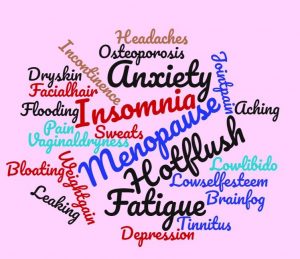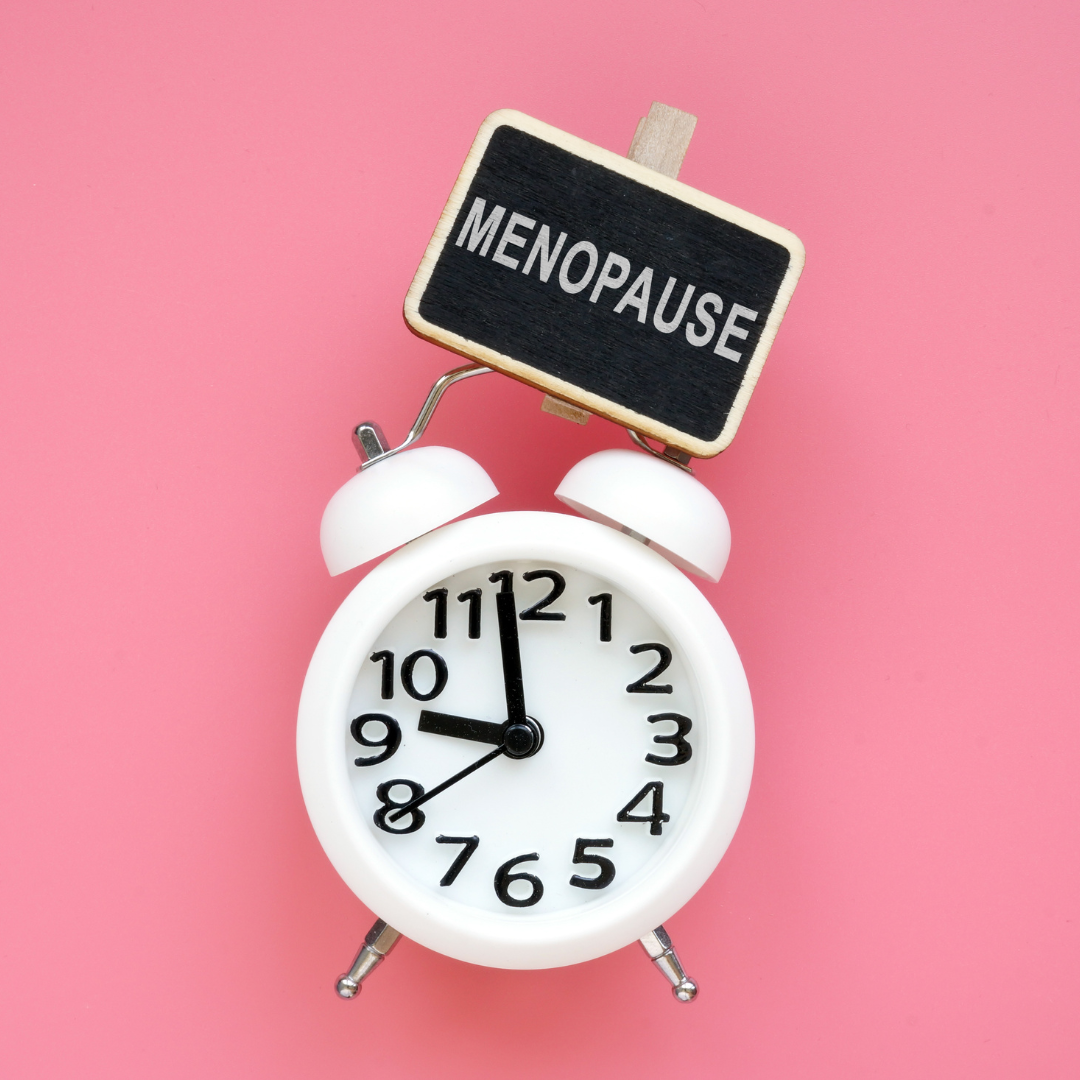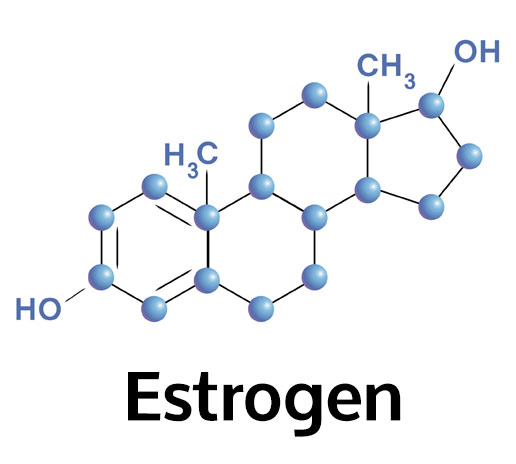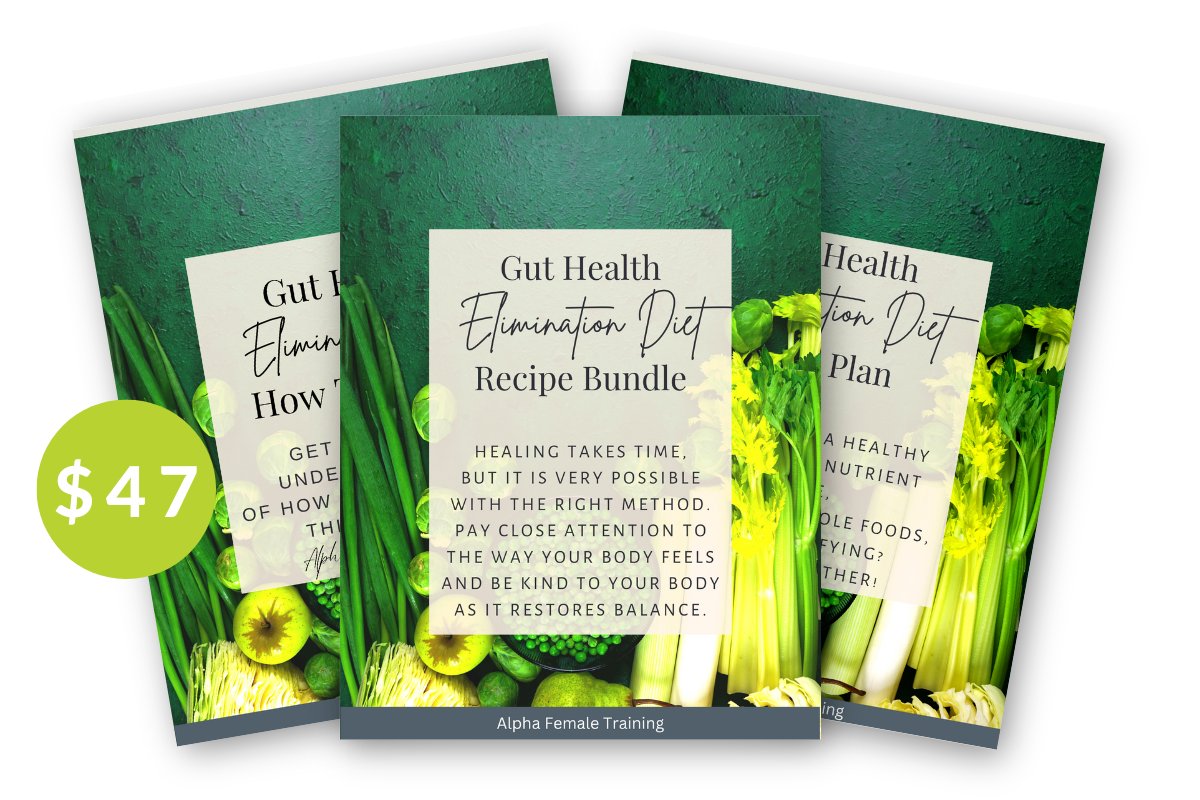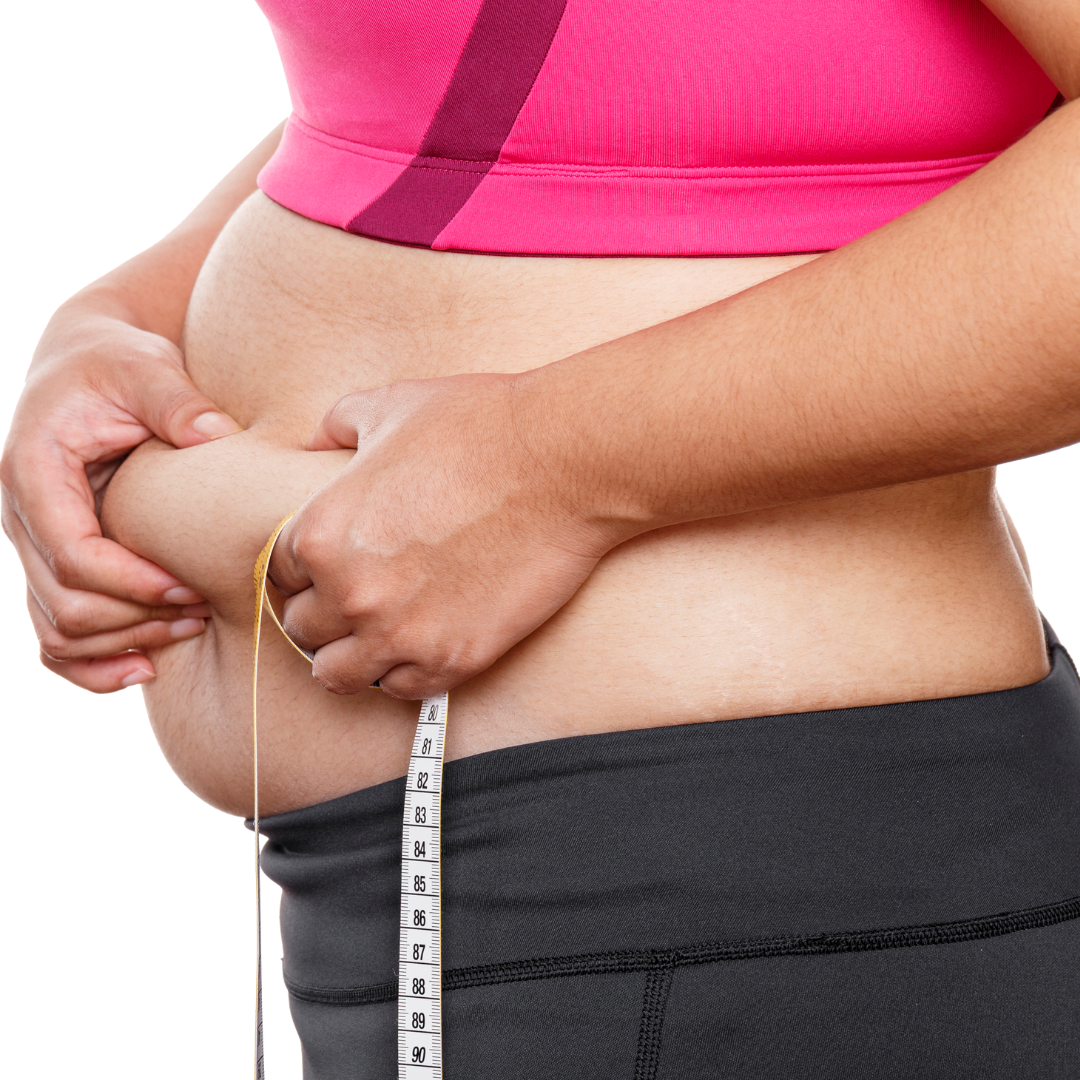Losing Belly Fat During Menopause
Menopause is a natural stage of our life that all women go through typically between the ages of 45 and 55, when the regular menstrual cycle stops. However, this transition can come with some unpleasant symptoms that may make life a bit more challenging and less enjoyable and have you looking up ways for losing belly fat during menopause in a panic.
But don't worry, I'm here to help! In this article, I'll share some scientifically-backed dietary changes you can make to help manage menopause symptoms and improve your overall well-being.
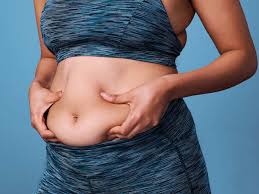
Early menopause symptoms can include
During menopause, the most significant change that occurs in a woman's body is a decrease in the levels of circulating estrogen. This hormonal shift can lead to a change in metabolism and cause weight gain, particularly in the form of fat. A survey conducted in 1993 found that 50% of European women reported gaining at least 4.5 kg (9.9lbs) during menopause, and similar results were reported by women in the US. Almost all women worry about losing belly fat in menopause even those who were previously lean.
Apart from weight gain, fluctuating hormones can also cause a range of symptoms, such as hot flashes, mood swings, sleep disturbances, and fluctuating energy levels. These symptoms can greatly impact a woman's daily life and cause frustrations. Additionally, the decline in estrogen levels can have negative effects on bone health, muscle mass, skin, and cardiovascular health.
Considering all of these factors, it's important to focus on 5 key areas when building a diet for losing belly fat during menopause.
Maintain or INCREASE your metabolism
To manage menopause symptoms, it's essential to adjust both the quantity and types of foods you consume. To achieve this, you should focus on low-energy-density foods, such as vegetables, fruits, soups, salads, low-fat protein sources (chicken, prawns, fish, etc.), low-fat dairy, and high-fiber foods.
Increasing your protein intake can also help to burn more calories, which can range from 0.8-22%. Protein is the most filling macronutrient and can help prevent cravings that may derail your diet. For instance, you can add eggs or low-fat dairy to your breakfast, have lean meats, fish, or seafood for lunch and dinner, and snack on beef jerky, low-fat Greek yogurt, or protein smoothies or shakes in the evening.
Becoming more physically active in your daily life is also crucial. Simple activities like taking a 30-minute walk, using the stairs instead of the elevator, walking instead of driving, gardening, etc., can help increase your energy expenditure by up to 350 calories per day. This will increase your chances of losing belly fat during menopause. Most of us sit far too much nowadays!
Work on building strong bones
To support strong bones during menopause, it's important to increase your activity levels throughout the day by walking, taking the stairs, and exercising. Additionally, you need to consider your total energy intake, protein, calcium, vitamin D, and vitamin K. Avoid very low-calorie diets or crash diets as they can be disastrous for your bone health.
You can include calcium and protein-rich foods, such as low-fat Greek yogurt, milk, or fortified soy milk, to improve your bone mineral density. While it may be tempting to remove dairy products from your diet while trying to lose weight, it's not a good idea during menopause. Research has shown that consuming dairy can delay the onset of menopausal symptoms and improve sleep quality.
It's also a good idea to supplement with vitamin D, especially during the winter months. Vitamin D not only supports bone health, but it also boosts your immune system, improves your mood, and helps maintain your muscle mass.

Keep and build on your muscle mass
Similar to bones, muscles also need load. So, adopting an active lifestyle combined with regular resistance training can be beneficial for your muscle health. Resistance training improves your quality of life, functional strength, and mental wellbeing as you age.
Increasing your protein intake can also help support the maintenance of muscle mass. As we age, our muscles become less responsive to the signals of protein and amino acids that normally stimulate muscle growth and repair processes. This makes it more difficult to maintain muscle mass and can lead to frailty.
Incorporating more protein-rich foods into your diet at every meal and snack can help maintain muscle mass. Research has shown that a 60% increase in daily protein intake combined with resistance training can help build lean muscle mass.
Building muscle can also have significant benefits for long-term health and can help alleviate menopausal symptoms such as hot flashes, night sweats, heart palpitations, and changing blood pressure. Lean muscle mass is metabolically active, which means it burns calories even at rest. Increasing your protein intake and building muscle can help you in losing belly fat during menopause.
Beyond weight loss, increasing muscle mass can also prevent or improve various health conditions. These include reduced risk of sarcopenia, frailty, falls, fractures, heart disease, diabetes, and cancer. Building muscle can also improve bone health, skin strength, joint health, brain health and organ function.
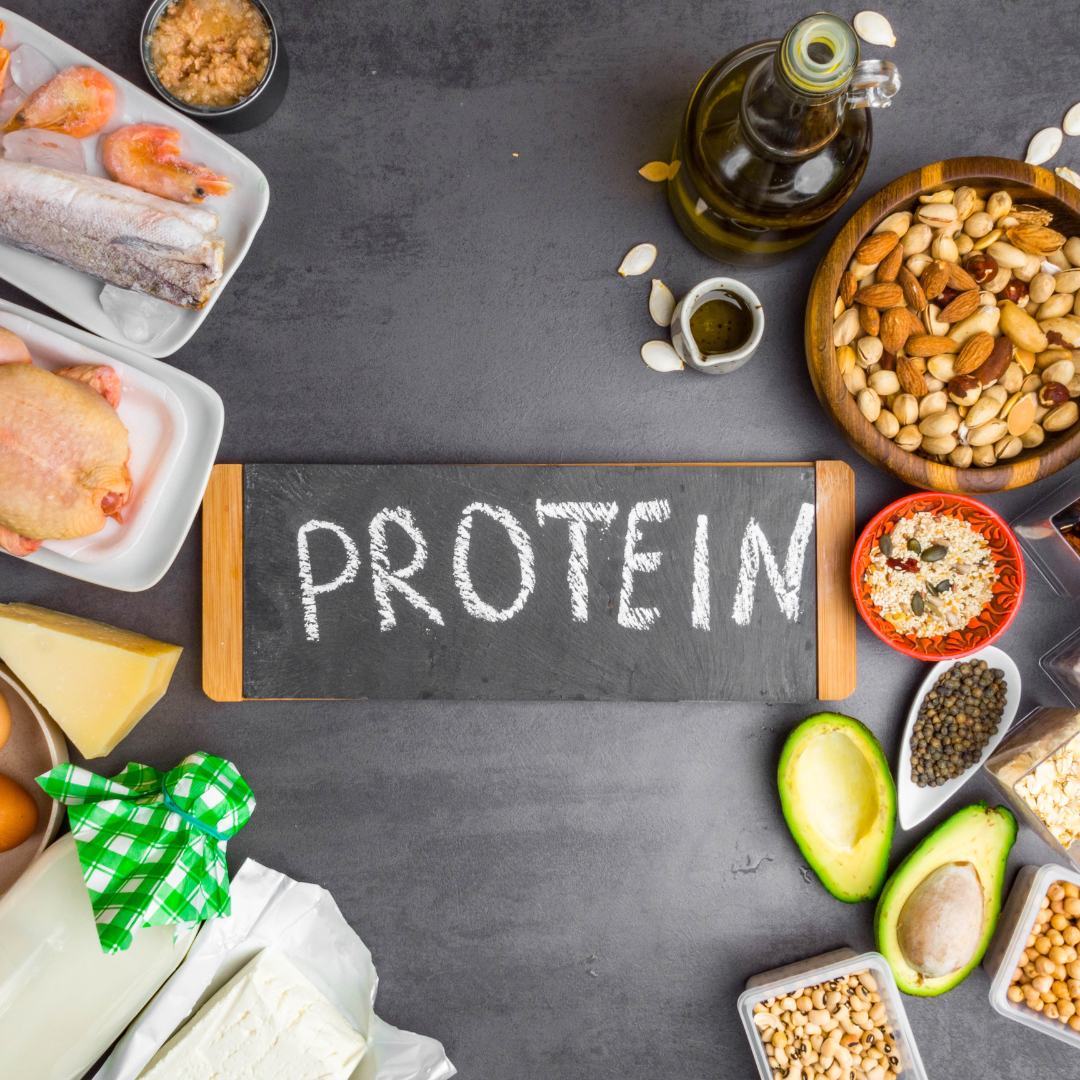
Work on increasing your production of collagen
The menopause years bring about a significant drop in circulating estrogen, which can have a major impact on the body's production of collagen. Research has shown that women deficient in estrogen experience a reduction in skin thickness and collagen content of up to 1.13% and 2% per post-menopausal year, respectively. This can result in visibly reduced skin strength, fine lines, wrinkles, and overall aging skin.
However, consistent supplementation with a high-quality hydrolyzed collagen peptide at a dose of 2.5-10 grams per day can help improve skin elasticity by increasing the production of pro-collagen type 1 and elastin. In fact, studies have shown that post-menopausal women who consumed a drink containing hydrolyzed collagen peptides and other vitamins experienced visible reductions in wrinkle depth and improved subjective skin appearance. Regular hydrolyzed collagen peptide supplementation at around 10 grams per day has also been shown to have beneficial effects on skin structure and appearance.
Therefore, it is recommended to supplement daily with a high-quality hydrolyzed collagen peptide at a dose of around 10 grams per day to support skin health during and after menopause.
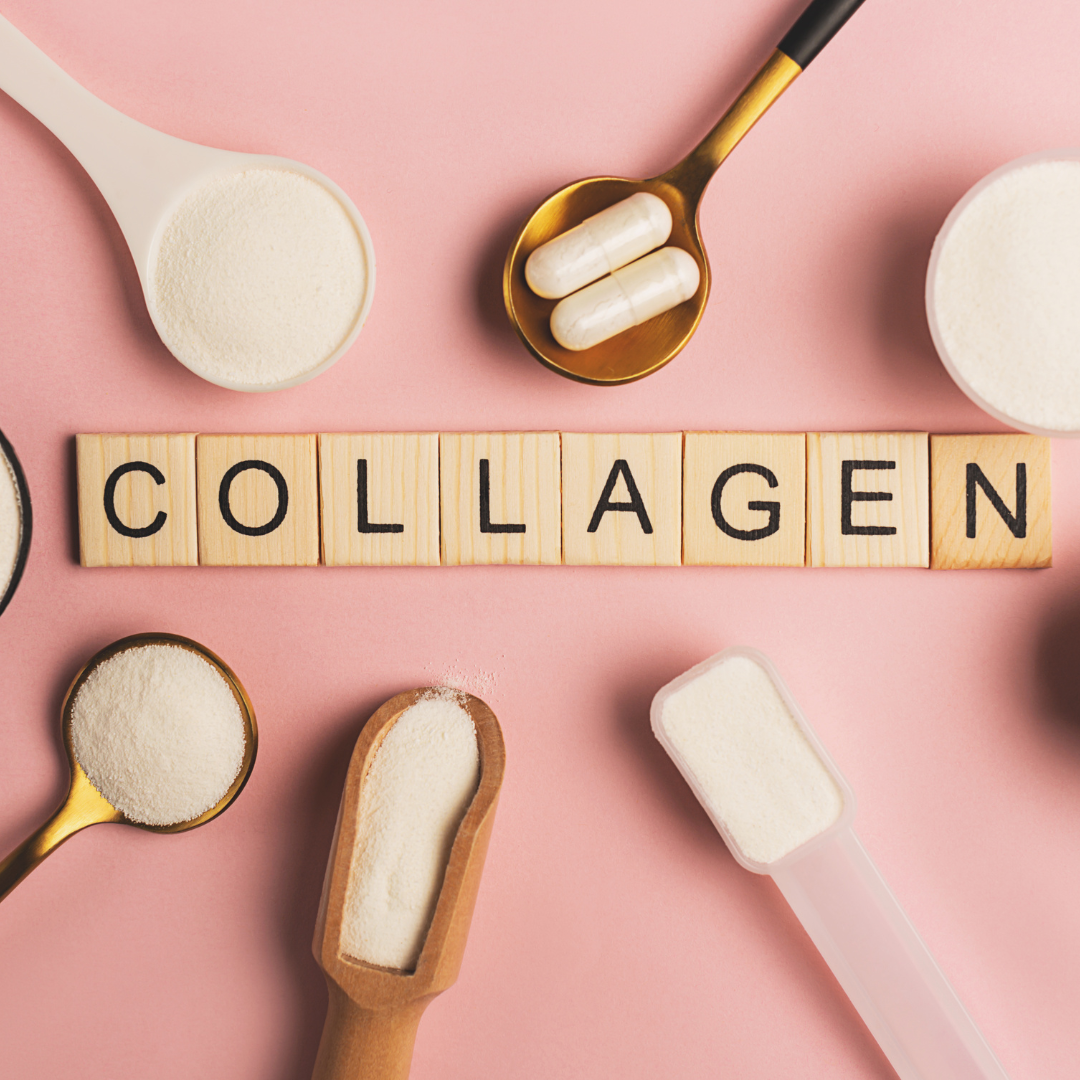
Overcome other symptoms with supplements
Phytoestrogens are natural nutrients found in soy, chickpeas, flaxseeds, grapes, and other foods that bind to estrogen receptors in the body, mimicking the effects of estrogen. Research from 2014 found that women who consume more phytoestrogen-rich foods experienced a reduction in the frequency of hot flashes, without any serious side effects.
There are several other supplements that show promise in treating various menopausal symptoms. Ashwagandha, an ancient Ayurvedic herb, may reduce hot flashes, improve mood, and decrease stress and anxiety during menopause. Similarly, increasing your intake of omega-3s from sources like salmon, mackerel, and seeds, or through supplementation, can improve mental wellbeing and reduce the risk of depression.
Consuming more antioxidants and dietary polyphenols from fruits, vegetables, and spices like turmeric and maca root can also help reduce oxidative stress and inflammation, potentially leading to a reduction in hot flashes.
The gut microbiome undergoes changes during menopause, which can increase susceptibility to weight gain, body fat accumulation, and insulin resistance, ultimately increasing the risk of diabetes. Supplementation with probiotics has been shown to have beneficial effects on body weight and hormonal balance in menopausal women.
Helpful additions to losing belly fat during menopause
The previously mentioned dietary changes are certainly beneficial for reducing common menopausal symptoms. However, it's important to note that there are certain dietary factors that can increase the severity of our menopausal symptoms and should be avoided. These include consuming refined carbohydrates, regular caffeine, regular alcohol, spicy and salty foods.
In conclusion, menopause leads to various changes in metabolic rate, muscle, bone, heart health, and mood. Following a diet that includes low energy density, high protein, and high fiber whole foods, along with supplements such as vitamin D, collagen, whey protein, creatine, and probiotics can be helpful.
I map out all of this for my one on one clients and in my online programs so they are hitting their menopause belly from all angles. Click on the Programs tab so see all the things I can offer you to help!
